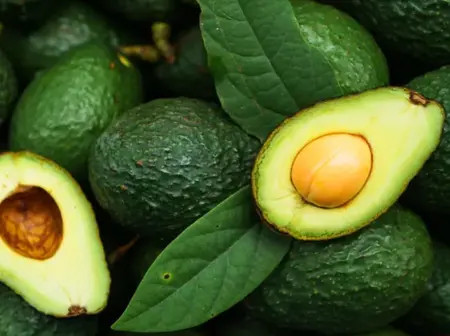We spoke with farmers, traders, middlemen, farmer associations and co-operatives, processors and exporters and observed the avocado trade.
We found that avocados are damaged because brokers and transporters routinely jump on sacks to compress them for transport, or use their feet to spread them. This is because of the misperception that unripe fruit is “as hard as stone” and cannot be damaged.
Hass avocados grown specifically for export are only accepted if they’re intact, clean, a good size, green in colour with no blemishes and have short stalks.
The domestic avocado varieties are wasted because farmers often have no cold storage or access to fast transport to get them to market quickly. They ripen very fast after harvest and if they’re not sold promptly, they spoil.
Before 2016, rejected export avocados were dumped. Today some are bought by oil processing factories.
Our research also found that there is very little support from agricultural extension officers for smallholder farmers who grow for the local market. These farmers lack training in quality standards, harvesting techniques, and how to negotiate with the brokers and traders. Women are most affected because they dominate the domestic avocado trade, harvesting the avocados and selling them to middlemen and consumers. They have less access to capital and infrastructure than male-owned small businesses who dominate the wholesale market.
The middlemen who buy the avocados in bulk from the women often use their advantaged positions to offer lower prices, sometimes reject a consignment, or use their own standards to reject avocados.
Smallholder farmers growing for the local market have another problem: they harvest first and negotiate prices afterwards. They’re in a race against time to sell before the avocado spoils, and if brokers back out or offer lower prices, farmers are forced to sell quickly or risk spoilage.
The inequalities in the industry come from exporters, brokers, and owners of avocado packhouses holding much more power than farmers. They set prices, enforce standards and control contracts.
In addition, only some farmers can attempt selling their avocados directly on the export market because they need certificates to show their produce meets all the quality standards required by the export market. This is very difficult for smallholder farmers, our research found.
To access required inputs for production, some smallholder farmers get credit from exporters that’s deducted after harvest. If the crop fails, the smallholder farmers are left with no safety net. They cannot simply sell their avocados locally if they’re rejected. My research found that domestic consumers prefer large, smooth-skinned avocado varieties. Export varieties like Hass are smaller and rougher, making them harder to sell locally.
My research came up with several ways to end Tanzanian avocado waste:
In the rush to transform African agriculture for global markets, it is important to consider what is left behind or thrown away. Food waste is not just a symptom of inefficiency; it is a mirror of deeper injustices. To build sustainable and inclusive food systems, we must ask why so much food is wasted and who pays the price.
Jonas Cromwell, Lecturer in Food Security in the School of Food Science and Nutrition, University of Leeds
This article is republished from The Conversation under a Creative Commons license. Read the original article.

Leave a Reply